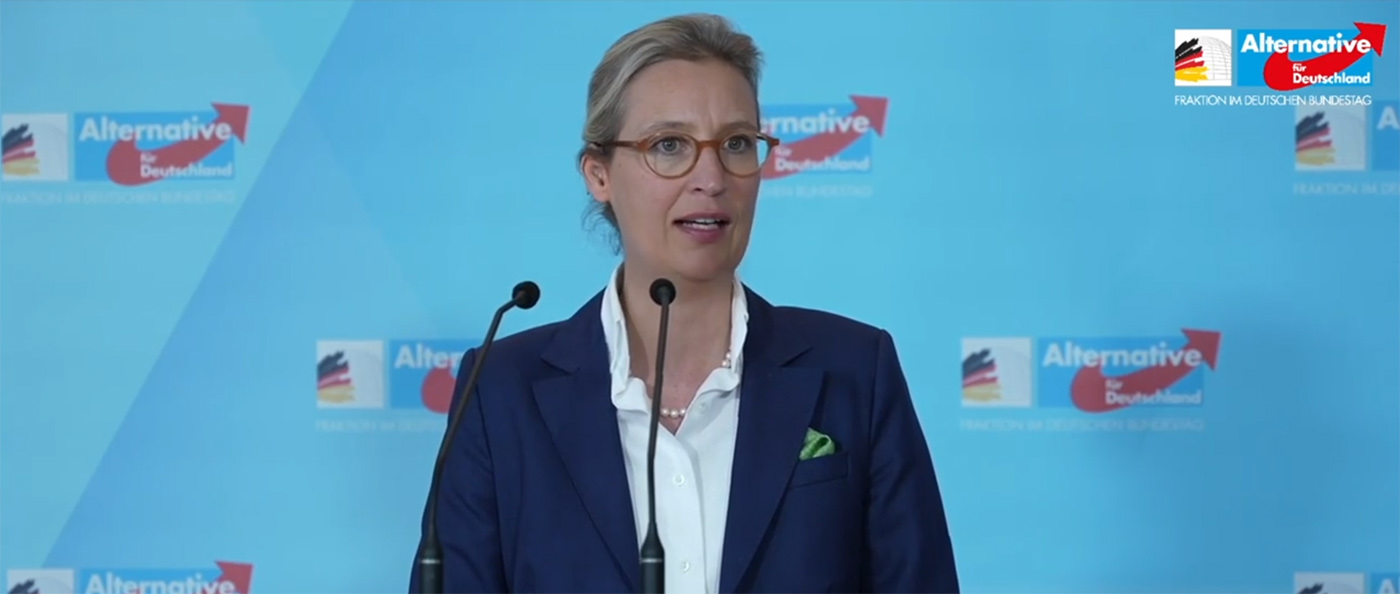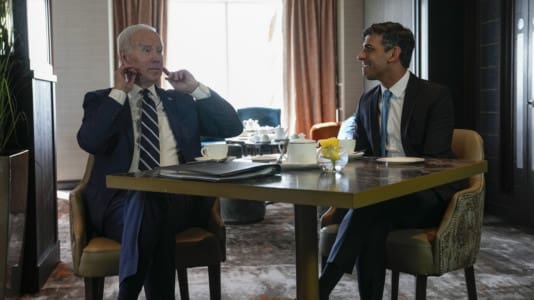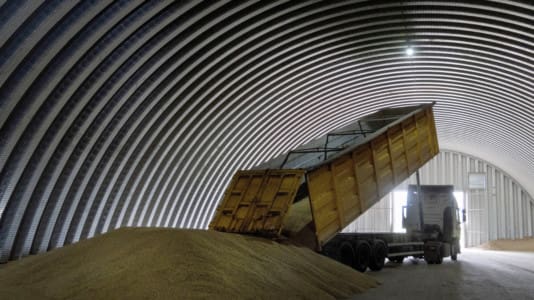Germany’s powerful public service television stations, ARD and ZDF, serve as formidable gatekeepers to the German public when it comes to political opinions in the country. Both outlets, which receive billions in mandatory fees from taxpayers, feature political talk shows that shape the nation’s political landscape. The problem for the Alternative for Germany (AfD) party is that both stations have systematically excluded the party from appearing on the networks, and data from the first quarter of 2023 shows that this trend line remains in place.
According to German law, both networks are required to showcase a range of political opinions and parties that reflect German society. While AfD has polled at 16 percent and above, making it one of the most popular parties in the country, that has not helped the party gain representation on the networks.
As Junge Freiheit reports, while the other parties represented in the Bundestag made a total of 137 appearances from January to March, the AfD was not invited even once. This unofficial ban on AfD guests comes despite the two networks being legally required to represent a plurality of political opinions.
“This targeted and continued boycott of the second strongest opposition party in Germany by public broadcasters committed to political neutrality and balance is outrageous,” AfD leader Alice Weidel said in an interview with Junge Freiheit. She said the party’s continued exclusion despite its stellar polling results and its large role in German parliament is a “manipulative intervention in the political opinion-forming of viewers.”
Weidel pointed to the influential ARD program “Hart aber fair” (Hard but fair). The show’s moderator, Louis Klamroth, who happens to be in a relationship with prominent Fridays for Future activist Luisa Neubauer recently took over the show. Since then, not a single AfD politician has been invited while a member of the Left party has been present for every other episode.
Weidel stated that the Left Party is “a party that is not even represented in the Bundestag with half as many deputies as the Alternative for Germany and that is struggling with the five-percent hurdle in the polls.”
However, the “Hart aber fair” show is far from the only show excluding the AfD. An analysis from Junge Freiheit shows that on the talk shows “Markus Lanz,” “Maybrit Illner,” “Maischberger” and “Anne Will,” a number of parties with poor election results got far more air time than the AfD.
The Green party has benefitted. While securing 14.9 percent of the vote in 2021 federal elections, they obtained 21 percent of invited politicians with 29 appearances since the beginning of 2023. The Left Party was the most overrepresented party, receiving 9.4 percent of total TV appearances while receiving under 5 percent of the vote, nearly twice its share. If the AfD had similar numbers, it would receive over 20 percent of appearances based on its result of 10.3 percent of the vote in 2021.
While not all Germans are supporters of the AfD, there is incredible discontent over the taxpayer fees associated with the public broadcasters, with polling showing that 80 percent of Germans do not agree with the approximately €18 they must pay every month for the two media giants. The polling also showed that 35 percent of Germans want to abolish the fee entirely.
Weidel is calling for a reform of ARD and ZDF more in line with what Germans actually want.
“The public broadcasting system must finally be reduced to its core task, the basic supply of information and news, and freed from the grip of the parties,” she said.
She indicated that the two networks should replace the compulsory fee with a voluntary fee — a demand that the government is unlikely to ever agree to. In fact, from 2025, the fee is set to rise to €20 a month.





